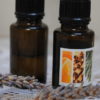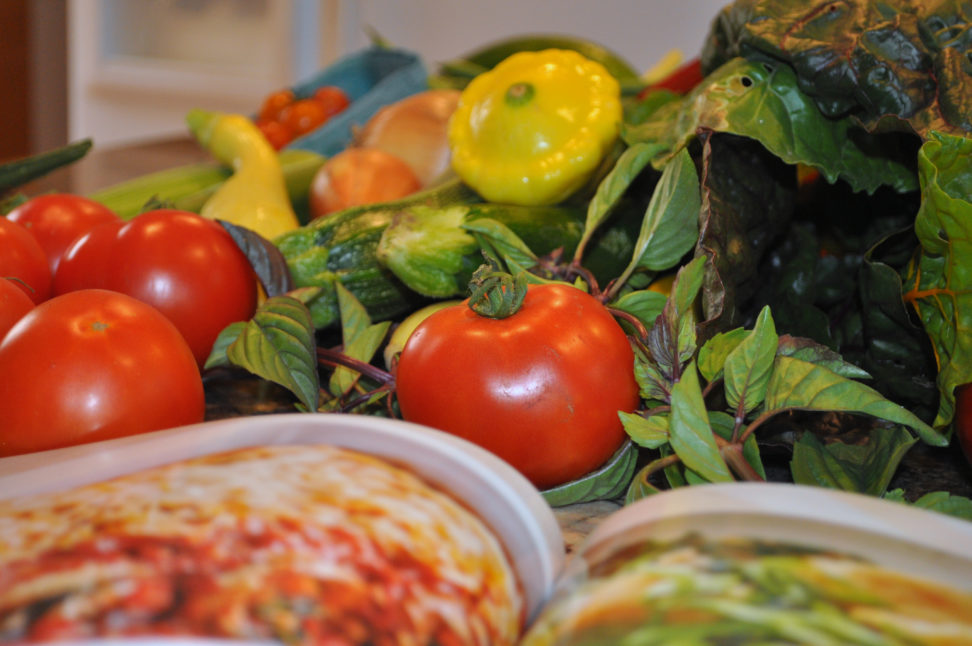What does it actually look like to eat a heart-healthy diet? It’s a phrase you hear a lot, especially in February. Let’s make it practical with these quick facts and simple tips.
An anti-inflammatory diet is a heart-healthy diet and is sometimes equated to a Mediterranean Diet. It is a diet packed with whole vegetables and fruits with minimally processed nutrient-rich protein and fats, like fish and olive oil. Imagine a colorful produce isle. Your heart-healthy anti-inflammatory diet starts in that isle.
In addition to that meta-analysis review of 80-plus studies, the description from this study describes how eating fruits and veggies (whole foods) can influence our health even at an early age.
“Study results show that the beneficial effects of fruit and vegetable intake on markers of inflammation and oxidative stress are already present by early adolescence and provide support for the Dietary Guidelines for Americans “to consume five or more servings per day” of fruits and vegetables to promote beneficial cardiovascular health.“
Like any worthwhile habit, eating an anti-inflammatory diet takes practice before it becomes, well, a habit! I recommend clients follow the anti-inflammatory Mediterranean diet because it is well-researched and it is easy to find recipes. I also recommend that people aim to eat whole foods 90 percent of the time, which allows you to incorporate those “cheat days.” Here are more useful tips:
- If you can get five plus servings of veggies into your day, go for it. If you don’t know what a vegetable is, It might be more doable to start with three to four. Eventually, the goal is anywhere between 7-13 servings of veggies a day depending on the person.
- Start in the morning. Add veggies to your breakfast. Throw in bell peppers and onions to your omelet. You’ll be surprised how good shredded carrots or cabbage taste in a breakfast hash. Before making your hash, replace that highly processed canola oil with a dash of high-quality olive oil in a nonstick pan. (Canola oil is linked to higher inflammation in the body)
- If you’ve got to have a potato in the morning, select organic potatoes, and try a hash with lean meat and vegetables. You’ll avoid the sugar spike from the potatoes with the balance of the protein and fiber, which will help you feel more satisfied and last longer in the morning.
- Don’t forget the convenience of a morning smoothie! Add veggies with fruit and protein powder. Easy. Delicious. To start, check out this Power Breakfast Smoothie.
- Include more nuts and seeds throughout the day. It’s a good snack and a nice addition to salads.
- Reimagine salads! Try broccoli slaw with lunch. Look for a no-potato potato salad with cauliflower. Get your protein and veggies with Mediterranean Crunch Salad.
- Add more fish to your diet or other minimally processed meats. (Try this Grilled Salmon with White Bean and Arugula Salad.)
- If you’re going to eat beef/meat, look for minimal processing, like no added nitrates, which are often added to processed meats. Always look for grass fed or pasture raised meat. Minimize the servings of meat per day making your fruits and veggies the largest portions on your plate. Too much meat actually increases risk of certain cancers and inflammation in the body.
- Speaking of nitrates, you can guarantee that fast food is packed with this additive. If you’re needing something fast, look for other quick foods that are balanced and without added sugar and chemicals. Thankfully, there are now numerous companies offering snacks full of nuts and seeds and reduced sugar. You can also look through healthy snack recipes and prep before the week begins.
- Make food prep more fun. Watch a show on your tablet. Listen to an audiobook or podcast. Cook with a friend or family member. Eating whole foods does take food prep, so be good to your heart and health by making food prep a habit.
An anti-inflammatory lifestyle can increase your quality of life. Following the heart-healthy tips above is a great place to start. Eating healthy is one way to improve your heart health but also include other related anti-inflammatory habits of getting good sleep, reducing stress, and consistent exercise.
If you’re looking for more information specifically on the Mediterranean diet, look through this quick guide or, as always, drop me an email with questions!



![z31[1]](https://simplywholebydevi.com/wp-content/uploads/2018/06/z311-100x100.jpg)












